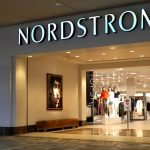American Apparel & Footwear Association (AAFA) President and CEO Kevin M. Burke welcomed the launch of a campaign by the Obama Administration aimed at educating the American public about the harm that counterfeit goods have on the U.S. economy and the threats these fake goods pose to public health.
“Each year, the U.S. government seizes more counterfeit footwear, apparel, and fashion accessories like handbags than any other consumer good.
“Whether we are working with our trading partners to prevent the shipment of fake goods, ensuring the U.S. government has the tools it needs to enforce intellectual property rights, or educating consumers who purchase goods about what is real and what is not, the U.S. apparel and footwear industry has long understood that the problem of counterfeiting is a challenge that must be fought on a variety of levels.
“I firmly believe that, much like the drug trade, if we educate consumers about the economic and public health risks of purchasing fake goods, we can significantly reduce the public desire for counterfeit products.
“The leadership demonstrated by Attorney General Eric Holder, Secretary of Commerce John Bryson, Intellectual Property Enforcement Coordinator Victoria Espinel, Director of Immigration and Customs Enforcement John Morton, and a host of other stakeholders in this public education campaign is a welcome step in teaching Americans that buying real and genuine goods helps strengthen our economy, reduces crime in our communities, and keeps the public safe.
“The U.S. apparel and footwear industry looks forward to working with the Obama Administration and congressional leadership in fighting the scourge of counterfeiting on all fronts.”
The American Apparel & Footwear Association (AAFA) is the national trade association representing apparel, footwear and other sewn products companies, and their suppliers, which compete in the global market. AAFA's mission is to promote and enhance its members' competitiveness, productivity and profitability in the global market by minimizing regulatory, commercial, political, and trade restraints.















